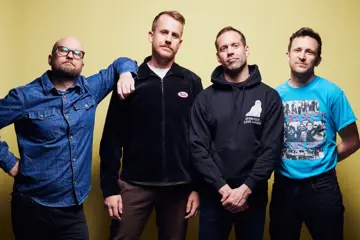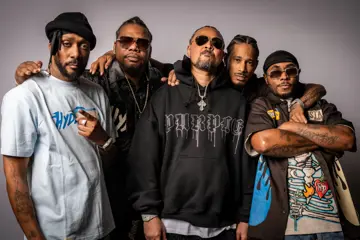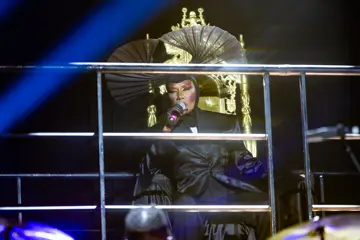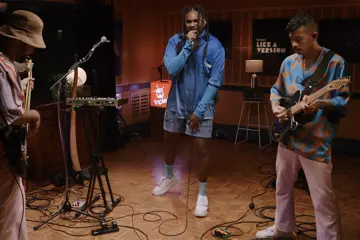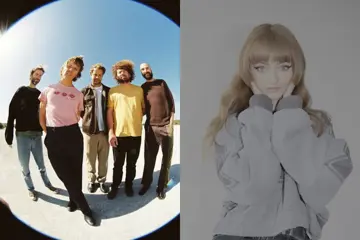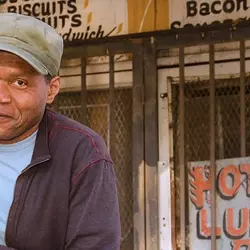 Robert Cray Band
Robert Cray BandRobert Cray has been at the musical coalface for over 40 years now - both fronting Robert Cray Band and in solo mode - plying a smooth blend of blues and R&B defined by his soulful vocals, distinctive guitar style and often-innovative arrangements.
His rich and storied career has found him playing with everyone from Richard Clapton and The Rolling Stones to John Lee Hooker and BB King, picking up five Grammys along the way and being inducted into the Blues Hall Of Fame in 2011, an honour matched last year when he received the Americana Music Lifetime Achievement Award For Performance.
Cray's most recent album found him decamping to Memphis to work with legendary soul ensemble Hi Rhythm, returning him to a city that has played a big role in his own musical journey.
"I think that Memphis is the cradle of American music, in my opinion," he smiles. "First of all because of its relationship with the Mississippi Delta, it was the big city that everybody first migrated to and started recording in all those studios. And also it was a melting pot for the different races. If you think back to all the recordings that happened at Sun Studio - from Howlin' Wolf to Elvis Presley - to the musicians that worked at Stax and the recordings done at Hi Records, there was a whole lot that happened in the city of Memphis and I'm really partial to it - being that we do both blues and rhythm and blues."
Cray's own take on the blues adds a modern spin to the age-old form, which is a fact he puts down to natural curiosity.
"It's just us being us," he shrugs. "I'm a big fan of blues music but I don't try to totally emulate what I hear. There's always a new way of doing something, and that's just part of what we are, and also because we listen to a lot of different kinds of music. If I ever tell myself I'm going to write straight-ahead blues it never turns out being that way, it just goes how it goes and it's never really straight-ahead."
Don't miss a beat with our FREE daily newsletter
Cray was at the vanguard of the contemporary blues boom of the mid-'80s alongside cohorts such as Stevie Ray Vaughan, but, like many musicians of his generation, it was The Beatles who first persuaded him to pick up a guitar.
"Prior to me playing guitar, my parents had great records - we were listening to Miles Davis and Ray Charles and Sarah Vaughan and all that stuff, and a lot of blues music at home with gospel music on Sundays. If you'd asked my parents when The Beatles hit it would be, 'Where did the kid go wrong?'" he laughs. "But that's what kids do - they listen to what they want to listen to - and that's what I did.
"And fortunately radio at that particular time played everything: they played R&B, The Beach Boys and The Beatles, and Bobby Womack and Stax and Wilson Pickett - all that was on the radio at the same time so I heard everything. Then Hendrix came out and all that, but at the age of 16 I started hanging out with some friends who were listening to Buddy Guy, BB King, Magic Sam and Howlin' Wolf, and falling into that crowd was what started me on that track.
"Being a guitar player at the time, more so than anything it was the guitar players [that resonated]. It was BB King - his guitar was like magic. I remember listening to [Live In] Cook County Jail and listening to BB's guitar and Sonny Freeman playing drums, I thought that was the coolest stuff in the world.
"And Buddy Guy's maniacal guitar playing was pretty cool, but also there was Magic Sam and Muddy Waters and Howlin' Wolf and all these guys with these crazy, cool nicknames, it seemed like a whole different world of music that I needed to find out more about.
"Then there was Robert Johnson and his whole association with the devil - as teenagers we needed to find out more, we had to dive deep into it, and that's what we did."




